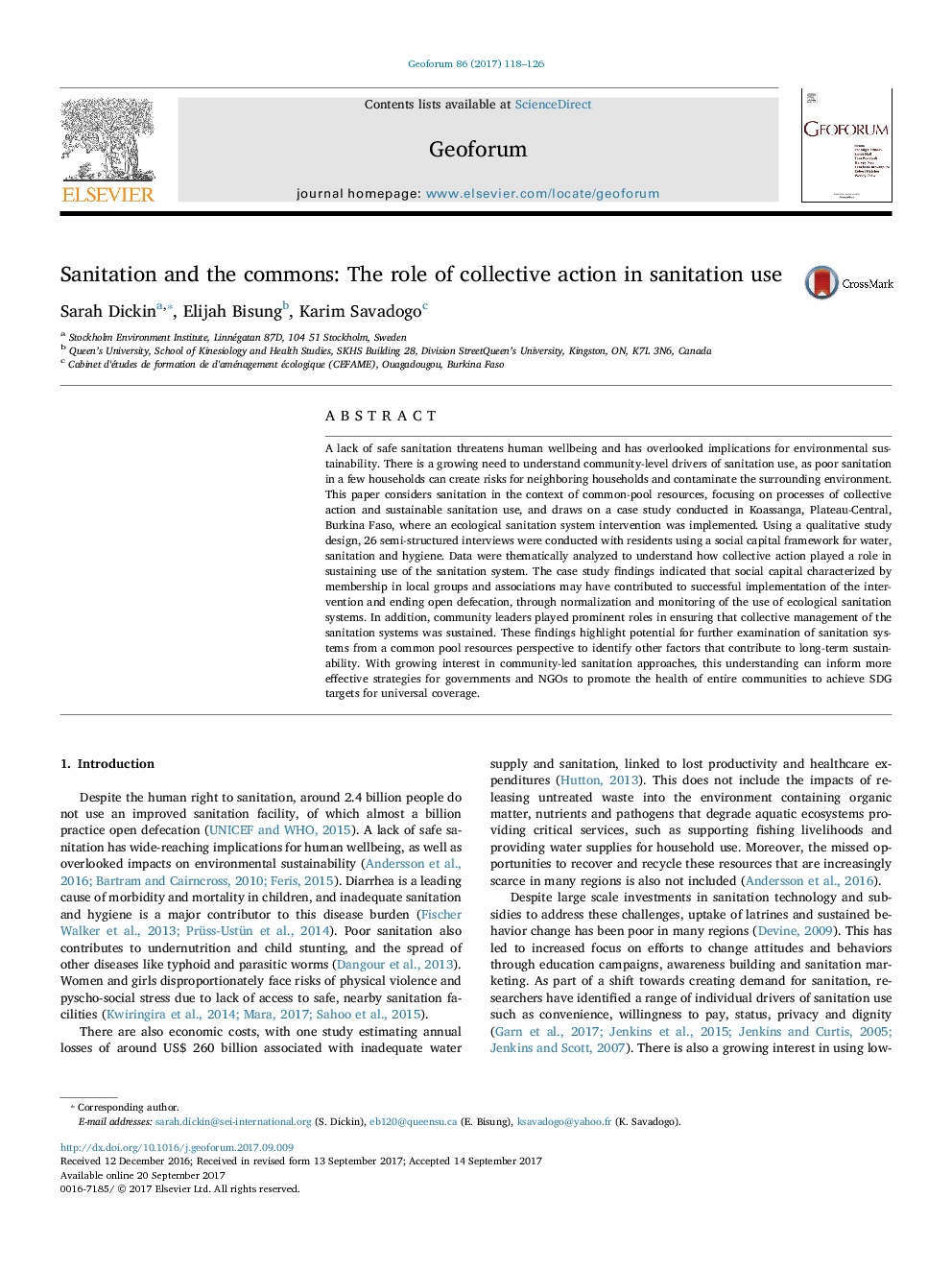ترجمه فارسی عنوان مقاله
بهداشت و عمومی: نقش اقدام جمعی در استفاده از بهداشت
عنوان انگلیسی
Sanitation and the commons: The role of collective action in sanitation use
| کد مقاله | سال انتشار | تعداد صفحات مقاله انگلیسی |
|---|---|---|
| 87781 | 2017 | 9 صفحه PDF |
منبع

Publisher : Elsevier - Science Direct (الزویر - ساینس دایرکت)
Journal : Geoforum, Volume 86, November 2017, Pages 118-126

